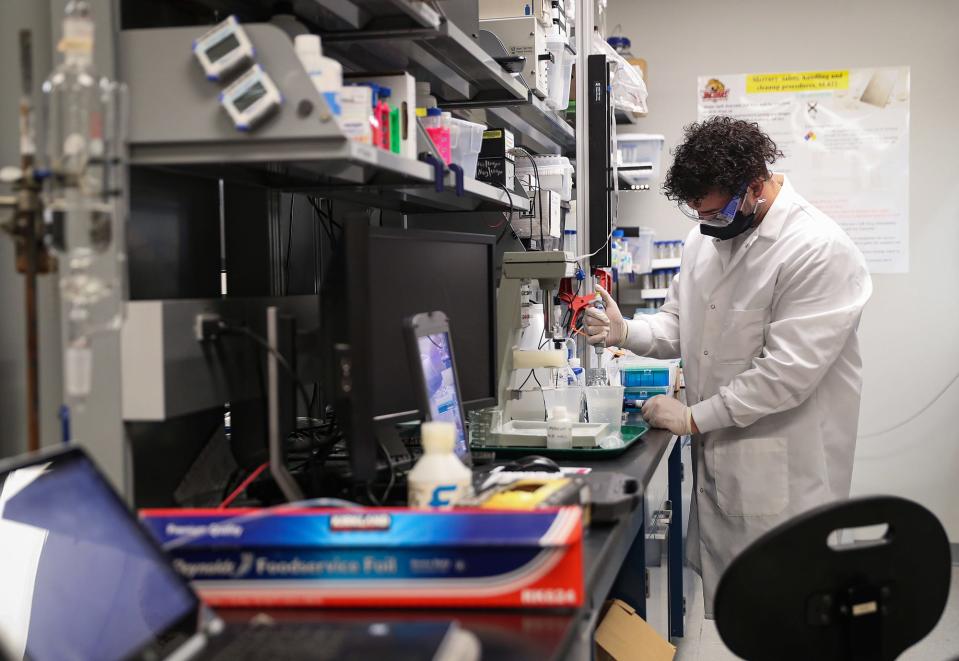Boyd: It took years, but bill to test drinking water in preschools for lead finally moving
Our legislators have spent a lot of time this year focused on protecting Indiana’s youth.
They had to.
After convening a special session on abortion in 2022 where the central theme was "protecting children," they had to do more than lip-service when it came to issues affecting children during this legislative session.
While our legislators pontificated on how much they love and care about Indiana’s children during that special session, I and others pointed out many of our state’s shortcomings. From infant mortality and overall well-being to poverty and health care, the data shows how high children are on our list of priorities in this state. Not very high at all, it turns out. Indiana is mostly all talk when it comes to “the children.”
Dismal record of caring for youth: Boyd: Indiana's record shows Hoosiers don't really care about children
So, it’s encouraging to see bills that actually live up to this ideal gain traction.
House Bill (HB) 1138 is one of those bills and is likely on its way to Gov. Eric Holcomb’s desk for his signature. HB 1138, authored by Rep. Carolyn Jackson, will require preschool and child care facilities to test drinking water for lead, and if the lead level exceeds 15 parts per billion, then the water source must be eliminated or a water filtration system installed.
In 2020, Indiana legislators passed House Bill 1265, also authored by Jackson, which requires schools to test drinking water for lead. HB 1138 takes the issue to the preschool level, where it could make a big difference as lead exposure is most harmful to children under 6. Sounds simple enough and like anyone who cares about children would want to get behind, but it took years for this bill to pass both chambers.

According to the Centers for Disease Control and Prevention, lead can damage the brain and nervous system, slow growth and development and cause learning, behavior, hearing and speech problems. In addition, lead can lower the IQ, cause a decrease in the ability to pay attention and underperformance in school.
A study by Princeton University and Brown University found lead exposure early in life — the preschool years — “significantly increases the chance that children will be suspended or incarcerated during their school careers.”
How does lead get into our water supply? Pipes, faucets and plumbing fixtures. While Flint, Michigan, became the poster child for lead contamination, it’s a public health issue for anyone who uses municipal water.
That’s why it’s encouraging to see movement on HB 1138, especially considering Jackson authored three previous bills on the same issue: House Bill 1433 in 2019, House Bill 1045 in 2021 and House Bill 1378 in 2022. This bill has been a long time a coming.
Caring for Indiana's children: Op/Ed: How are Indiana's children? State of the Child shows how we can help our youth
That brings me back to my initial point. Legislators had to spend time focusing on children’s issues. It would be bad optics not to pass the bill this year. Not that our legislators are immune to bad optics. We know they are not given that so many spent much of their time with a misguided focus on bills targeting books and transgender youth.
Book bans: Boyd: Library books in Indiana classrooms? Bad. Guns in classrooms? Good. Seriously SMH
HB 1138, however, gave legislators an opportunity to act on an issue that could positively impact Indiana’s children — and future adults — for generations. That’s not hyperbole. If we reduce the number of children exposed to lead, we reduce the negative outcomes associated with lead exposure and we have healthier children and adults in our state. It sounds like a win for Indiana, and I’m going to take a W when I can get one.
Contact IndyStar Public Engagement Editor Oseye Boyd at oboyd@gannett.com. Follow her on Twitter @oseyetboyd.
This article originally appeared on Indianapolis Star: Indiana moves to protect young children from lead exposure in water

